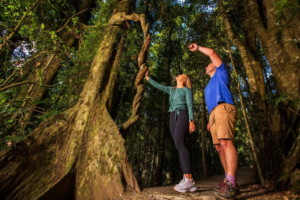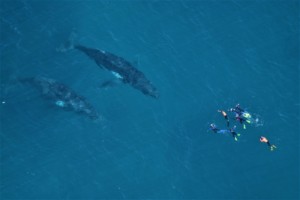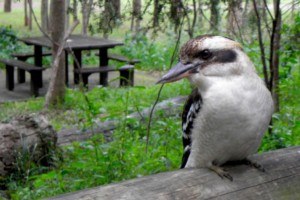From the ashes: The role of solidarity in Binna Burra’s tourism recovery
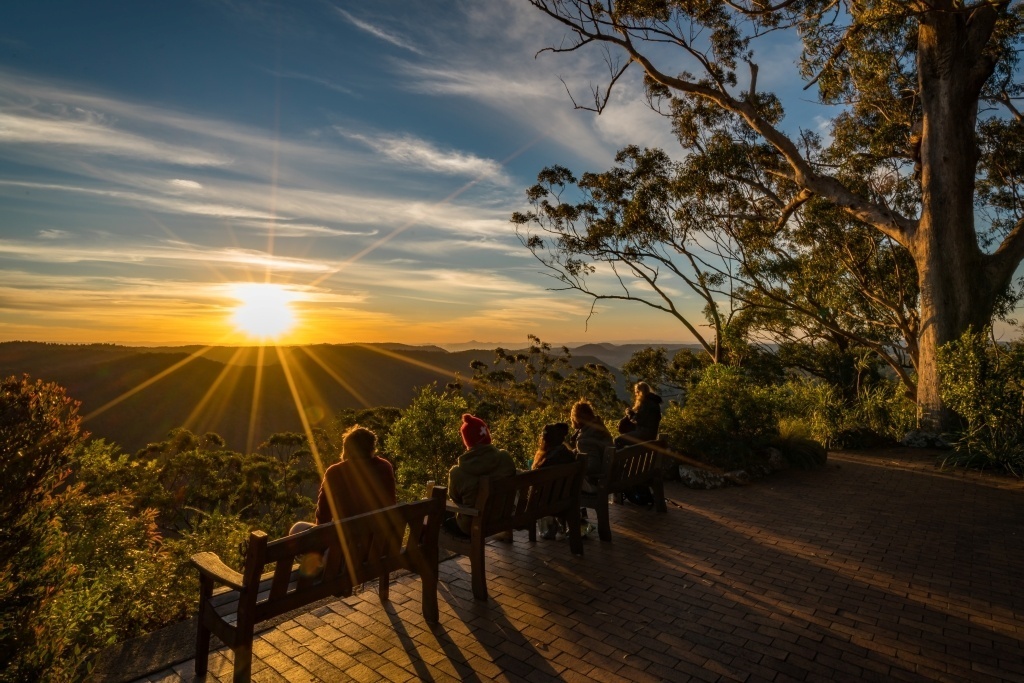
After a devastating fire followed by global pandemic, the ongoing recovery of Binna Burra Lodge in Queensland, Australia wasn’t possible without the support of people near and far who feel a connection to the place, its history, and its landscape. The story illustrates the power and value of goodwill, an intangible asset that manifested at Binna Burra as ‘solidarity tourism’. Steve Noakes tells it in this “Good Tourism” Insight.
On September 8, 2019, at the beginning of six months of what became known as Australia’s ‘Black Summer’ bushfires, the historic Binna Burra Lodge and pioneer cabins (built in the 1930s) were destroyed. They took with them the jobs of 60 staff, most of whom had to be retrenched, as well as 4,000 forward bookings, most of which had to be refunded.
Offices, computers, phone lines, and most records were destroyed. The business was gone. But suppliers still needed their invoices paid. Terminated staff had to be paid out their individual entitlements. Even the tax office demanded its scheduled payments.
Also see Sonia Beckwith’s “GT” Insight
“What to keep, change, do in a crisis (and why we should give a sh*t)”
And despite the online and offline media bombardment that had to be managed, it still took about six months to get the single road access through the World Heritage-listed Lamington National Park restored before the demolition and rebuilding work could even start.
At the time of the disaster, the immediate response and recovery phases were paramount. For a tourism enterprise, recovery from such a disaster is not a short-term process. It requires many years of engagement, financial support, and encouraging customers to return.
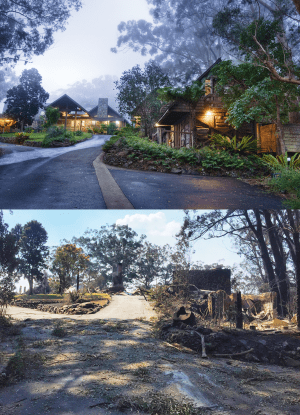
Compounding the struggle, only a few months into Binna Burra’s recovery, COVID became a global pandemic.
A year after the bushfire, the remaining visitor assets, including the Sky Lodges, the Safari tents, the campground, and the Binna Burra Tea House, were able to recommence operations and get the business going again; with a COVID-safe management plan in place as required by the Queensland Government Health Department.
What is solidarity tourism?
An opportunity we identified in the ashes of the disaster, as messages of love and support flooded in, was the concept of ‘solidarity tourism’. Solidarity tourism pertains to an ethic for travelling to support a particular destination or business that has a strong environmental or social mission.
A long way from Queensland, Australia, in Boston, USA, cultural tourism expert Meg Pier wrote that the devastation at Binna Burra Lodge inspired the notion of ‘solidarity tourism’. Binna Burra “provides powerful lessons in the meaning of the term ‘cultural landscape’ and how that designation is inextricably interwoven with the phenomenon of community”.
Indeed Binna Burra’s continuing recovery from the heartbreaking and seemingly insurmountable disaster is in no small part due to the day and overnight visitors who came — as soon as they could — to experience the spectacular landscape of the World Heritage-listed Lamington National Park.
Also see Tom Allen’s “GT” Insight
“Losing Lutruwita: Troubles in Tasmania’s World Heritage wilderness”
“Visitors got more than they expected,” according to Meg Pier. “They forged a bond not only with the place, but with its history, its people, and with each other.”
Even in this era of the COVID-19 global pandemic, our ‘solidarity tourism markets’ — from the families who have patronised Binna Burra for generations to new friends who have supported Binna Burra since its reopening in September 2020 — have been vital contributors to our ongoing recovery after the disaster.
What do you think? Share a short anecdote or comment below. Or write a deeper “GT” Insight. The “Good Tourism” Blog welcomes diversity of opinion and perspective about travel & tourism because travel & tourism is everyone’s business.
Featured image (top of post): Sunset from the Binna Burra Lodge terrace. Image supplied by author.
About the author
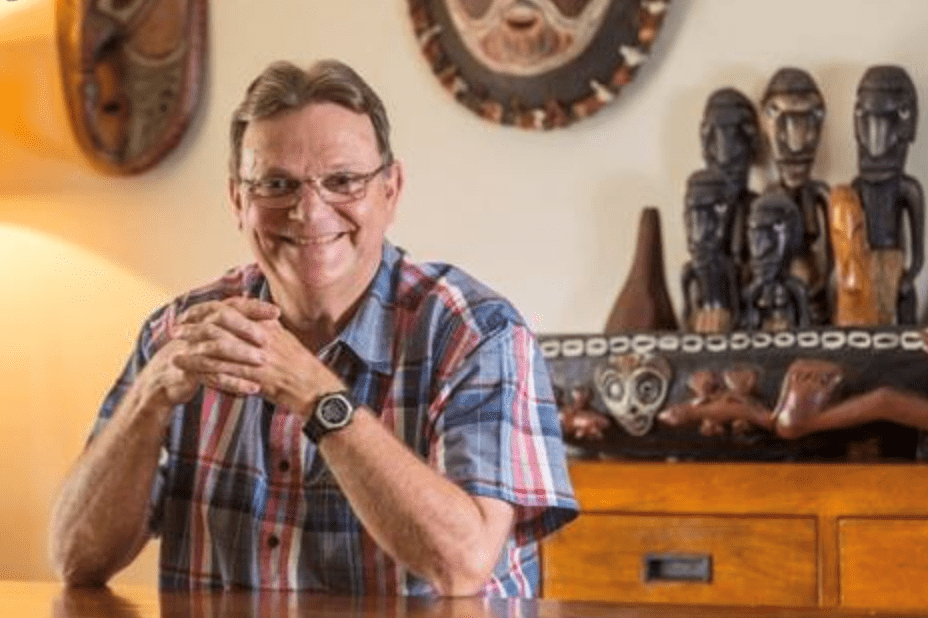
Steve Noakes lives near the World Heritage-listed Lamington National Park in Queensland, Australia. It’s where the Binna Burra Mountain Lodge, for which he is Chair, is located. Mr Noakes has been involved in the travel & tourism industry for more 40 years. He founded Pacific Asia Tourism, an international project management company focused on tourism’s capacity to contribute to the Sustainable Development Goals and to the Global Code of Ethics for Tourism. And he is a director/part-owner of Ecolodges Indonesia & EcoSafari Indonesia, which operate Indonesian lodges and inbound tours with a wildlife and biodiversity focus.


